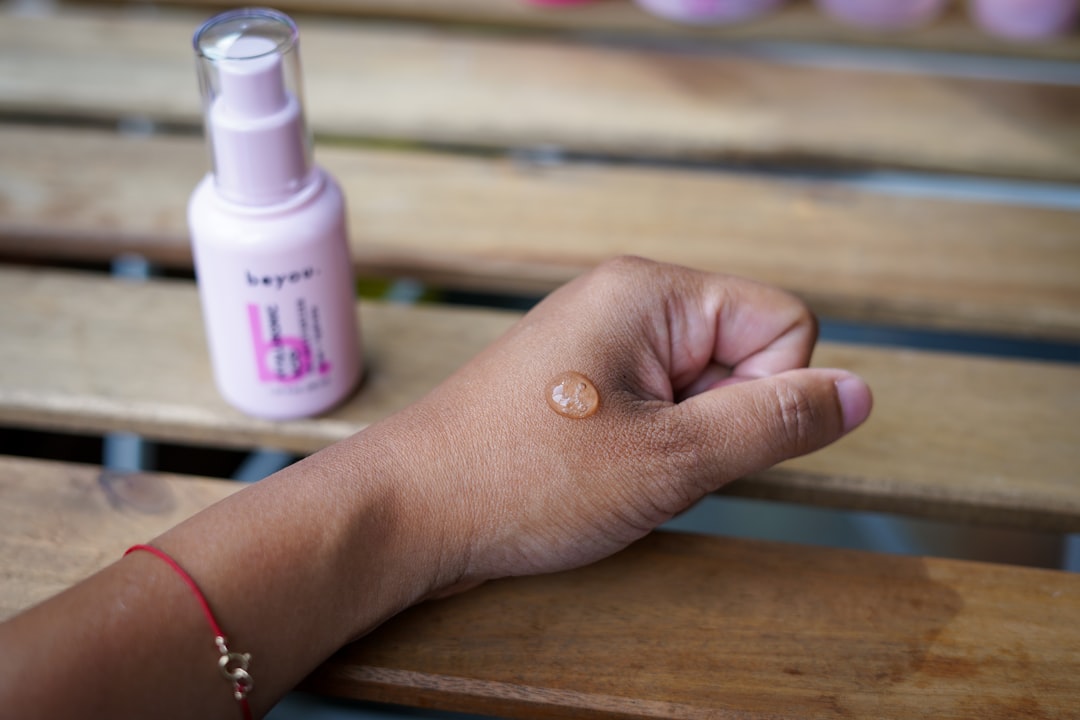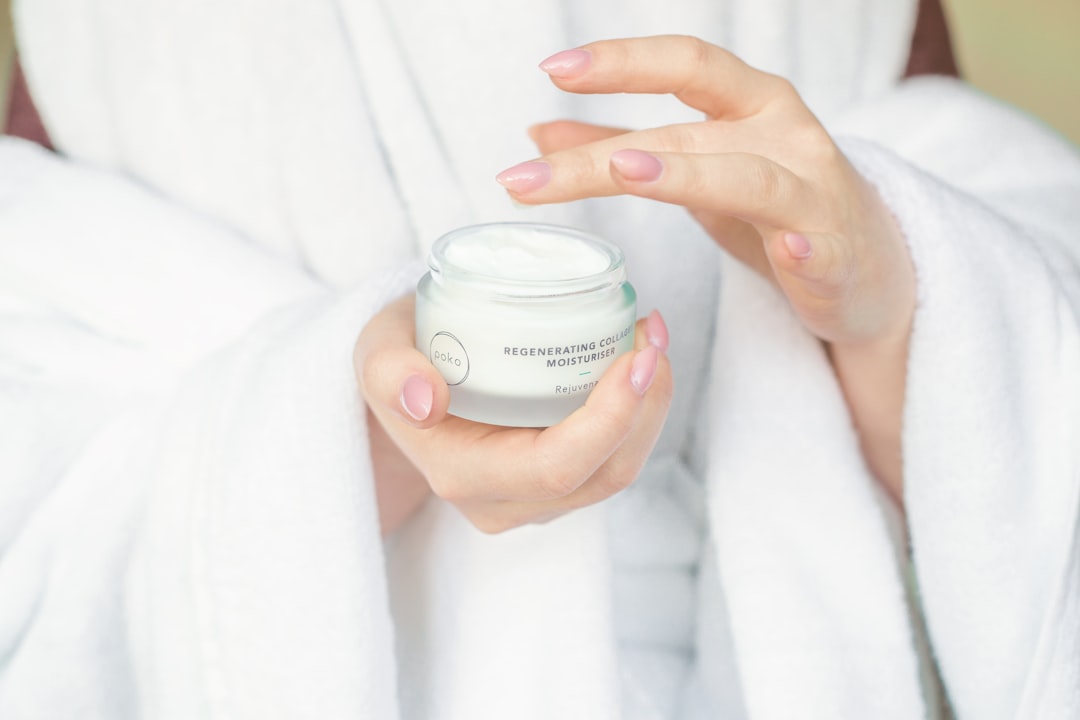Sensitive skin is a common condition that affects many individuals. It is characterized by a heightened reaction to certain products or environmental factors, leading to redness, irritation, and discomfort. Taking care of sensitive skin is crucial in order to maintain its health and prevent further damage. In this article, we will explore the causes and symptoms of sensitive skin, the importance of a gentle skincare routine, how to choose the right products for sensitive skin, tips for cleansing, exfoliating, and moisturizing sensitive skin, the importance of sun protection and choosing the right makeup for sensitive skin, how to treat common skin issues in sensitive skin, and lifestyle changes that can benefit sensitive skin.
Summary
- Sensitive skin can be caused by genetics, environmental factors, and skincare products.
- A gentle skincare routine is crucial for sensitive skin to avoid irritation and inflammation.
- Look for products with soothing ingredients like aloe vera and avoid harsh ingredients like fragrances and alcohol.
- When cleansing sensitive skin, use lukewarm water and a gentle cleanser, and avoid scrubbing too hard.
- Exfoliate sensitive skin no more than once a week with a gentle exfoliant and moisturize immediately after.
Understanding Sensitive Skin: Causes and Symptoms
Sensitive skin is a condition in which the skin reacts more strongly to certain stimuli than normal skin. It can be caused by a variety of factors, including genetics, environmental factors, and underlying skin conditions. Common causes of sensitive skin include allergies, irritants in skincare products or cosmetics, harsh weather conditions, and underlying skin conditions such as eczema or rosacea.
Symptoms of sensitive skin can vary from person to person but often include redness, itching, dryness, and a burning or stinging sensation. These symptoms can be triggered by various factors such as exposure to certain ingredients in skincare products or cosmetics, extreme temperatures, or even stress.
The Importance of a Gentle Skincare Routine for Sensitive Skin
A gentle skincare routine is essential for individuals with sensitive skin in order to avoid further irritation and maintain the health of the skin. A gentle skincare routine involves using products that are specifically formulated for sensitive skin and avoiding harsh ingredients that can cause irritation.
There are several benefits to following a gentle skincare routine for sensitive skin. Firstly, it helps to soothe and calm the skin, reducing redness and inflammation. Secondly, it helps to maintain the natural moisture balance of the skin, preventing dryness and flakiness. Lastly, a gentle skincare routine can help to strengthen the skin’s barrier function, making it less susceptible to external irritants.
To create a gentle skincare routine for sensitive skin, it is important to choose products that are specifically formulated for sensitive skin. Look for products that are fragrance-free, hypoallergenic, and free from harsh ingredients such as alcohol or sulfates. It is also important to avoid over-cleansing or over-exfoliating the skin, as this can further irritate sensitive skin.
Choosing the Right Products for Sensitive Skin: Ingredients to Look For and Avoid
When choosing skincare products for sensitive skin, it is important to look for certain ingredients that are known to be gentle and soothing. These include ingredients such as aloe vera, chamomile, oatmeal, and hyaluronic acid. These ingredients have anti-inflammatory properties and can help to calm and soothe sensitive skin.
On the other hand, there are certain ingredients that should be avoided in skincare products for sensitive skin. These include fragrances, alcohol, sulfates, and harsh exfoliants such as physical scrubs or chemical peels. These ingredients can cause further irritation and damage to sensitive skin.
Reading product labels is essential when choosing skincare products for sensitive skin. Look for products that are specifically labeled as suitable for sensitive skin or have been dermatologically tested. Avoid products that contain potential irritants such as fragrances or alcohol. It is also helpful to do a patch test before using a new product on your entire face to ensure that it does not cause any adverse reactions.
Cleansing Sensitive Skin: Tips and Tricks for a Soothing Cleanse
Cleansing is an important step in any skincare routine, but it is especially crucial for individuals with sensitive skin. Cleansing helps to remove dirt, oil, and impurities from the skin, preventing breakouts and maintaining the health of the skin. However, it is important to choose a gentle cleanser that will not strip the skin of its natural oils or cause further irritation.
When choosing a cleanser for sensitive skin, look for products that are fragrance-free, hypoallergenic, and formulated for sensitive skin. Avoid cleansers that contain harsh ingredients such as sulfates or alcohol. It is also helpful to choose a cleanser that is pH-balanced, as this will help to maintain the natural pH of the skin and prevent dryness or irritation.
When cleansing sensitive skin, it is important to be gentle and avoid rubbing or scrubbing the skin too harshly. Use lukewarm water instead of hot water, as hot water can strip the skin of its natural oils and cause dryness. Pat the skin dry with a soft towel instead of rubbing it, as this can further irritate sensitive skin.
Exfoliating Sensitive Skin: How to Do It Safely and Effectively

Exfoliating is an important step in any skincare routine as it helps to remove dead skin cells and promote cell turnover, revealing smoother and brighter skin. However, individuals with sensitive skin need to be cautious when exfoliating, as it can easily cause irritation and redness.
When choosing an exfoliator for sensitive skin, opt for gentle exfoliants such as chemical exfoliants or enzymatic exfoliants. These types of exfoliants work by dissolving the bonds between dead skin cells, making them easier to remove without causing irritation. Avoid physical scrubs or exfoliants that contain rough particles, as these can be too harsh for sensitive skin.
When exfoliating sensitive skin, it is important to be gentle and avoid over-exfoliating. Start by exfoliating once a week and gradually increase the frequency if your skin tolerates it. Be sure to follow up with a gentle moisturizer to hydrate and soothe the skin after exfoliating.
Moisturising Sensitive Skin: The Best Products and Techniques
Moisturizing is a crucial step in any skincare routine, but it is especially important for individuals with sensitive skin. Moisturizing helps to hydrate the skin, prevent dryness and flakiness, and maintain the skin’s natural moisture barrier. However, it is important to choose a gentle moisturizer that will not further irritate sensitive skin.
When choosing a moisturizer for sensitive skin, look for products that are fragrance-free, hypoallergenic, and formulated for sensitive skin. Opt for moisturizers that contain soothing ingredients such as aloe vera or chamomile. It is also helpful to choose a moisturizer that is lightweight and non-comedogenic, as heavy or greasy moisturizers can clog pores and cause breakouts.
When applying moisturizer to sensitive skin, it is important to be gentle and avoid rubbing or tugging at the skin. Use clean hands or a clean spatula to scoop out the product and gently pat it onto the skin. This will help to avoid further irritation and ensure that the moisturizer is evenly distributed.
Sun Protection for Sensitive Skin: Why It’s Important and What to Look For
Sun protection is essential for all skin types, but it is particularly important for individuals with sensitive skin. Sun exposure can cause redness, inflammation, and even sunburn in sensitive skin. It can also worsen existing skin conditions such as eczema or rosacea.
When choosing a sunscreen for sensitive skin, opt for products that are specifically formulated for sensitive skin or have been dermatologically tested. Look for sunscreens that are fragrance-free, hypoallergenic, and contain physical blockers such as zinc oxide or titanium dioxide. These ingredients provide broad-spectrum protection against both UVA and UVB rays and are less likely to cause irritation.
It is also important to apply sunscreen generously and reapply it every two hours, especially if you are spending time outdoors or in direct sunlight. Wear protective clothing such as hats and sunglasses, and seek shade during the peak hours of sun exposure.
Makeup for Sensitive Skin: How to Choose and Apply Products Safely
Choosing the right makeup products for sensitive skin is crucial in order to avoid further irritation and maintain the health of the skin. When choosing makeup for sensitive skin, opt for products that are specifically formulated for sensitive skin or have been dermatologically tested. Look for products that are fragrance-free, hypoallergenic, and non-comedogenic.
Avoid makeup products that contain potential irritants such as fragrances, alcohol, or harsh preservatives. It is also helpful to choose mineral makeup or products that contain soothing ingredients such as aloe vera or chamomile.
When applying makeup to sensitive skin, it is important to be gentle and avoid rubbing or tugging at the skin. Use clean brushes or sponges to apply the products and avoid sharing makeup brushes or tools with others. Be sure to remove your makeup thoroughly at the end of the day using a gentle cleanser.
Treating Common Skin Issues in Sensitive Skin: Acne, Rosacea, and Eczema
Sensitive skin is prone to certain skin issues such as acne, rosacea, and eczema. These conditions can cause redness, inflammation, and discomfort in sensitive skin. It is important to treat these conditions gently in order to avoid further irritation.
When treating acne in sensitive skin, opt for gentle acne treatments that contain ingredients such as salicylic acid or benzoyl peroxide. Avoid harsh treatments such as retinoids or strong chemical peels, as these can cause further irritation in sensitive skin.
When treating rosacea in sensitive skin, it is important to avoid triggers such as hot water, spicy foods, or alcohol. Opt for gentle skincare products that are specifically formulated for rosacea-prone skin and contain soothing ingredients such as aloe vera or chamomile.
When treating eczema in sensitive skin, it is important to keep the skin moisturized and avoid triggers such as harsh soaps or detergents. Opt for gentle cleansers and moisturizers that are specifically formulated for eczema-prone skin and contain ingredients such as ceramides or colloidal oatmeal.
Lifestyle Changes for Sensitive Skin: Diet, Stress Management, and More
Lifestyle changes can have a significant impact on the health of sensitive skin. It is important to manage stress levels, as stress can trigger flare-ups in sensitive skin. Practice stress management techniques such as deep breathing, meditation, or yoga. Get enough sleep and exercise regularly to maintain overall health.
Diet can also play a role in the health of sensitive skin. Avoid triggers such as spicy foods, alcohol, or caffeine, which can cause inflammation in sensitive skin. Opt for a balanced diet that includes plenty of fruits, vegetables, whole grains, and lean proteins.
It is also important to avoid smoking and limit alcohol consumption, as these can have a negative impact on the health of the skin. Stay hydrated by drinking plenty of water throughout the day, as dehydration can worsen sensitive skin.
Taking care of sensitive skin is crucial in order to maintain its health and prevent further damage. A gentle skincare routine that includes cleansing, exfoliating, moisturizing, sun protection, and choosing the right makeup products is essential for individuals with sensitive skin. Treating common skin issues such as acne, rosacea, and eczema gently and making lifestyle changes such as managing stress and maintaining a healthy diet can also benefit sensitive skin. By following these tips and taking care of your sensitive skin, you can achieve a healthy and radiant complexion.
If you’re interested in sensitive skin care, you might also want to check out this informative article on how your cleanser can affect your skin’s pH. Maintaining the right pH balance is crucial for healthy skin, and this article explores the impact of different cleansers on your skin’s pH levels. Understanding this relationship can help you choose the right products for your sensitive skin. To learn more, click here.
FAQs
What is sensitive skin?
Sensitive skin is a skin type that is easily irritated by various factors such as environmental changes, certain ingredients in skincare products, and even stress. It can manifest as redness, itching, burning, and dryness.
What are some common triggers for sensitive skin?
Common triggers for sensitive skin include harsh chemicals, fragrances, extreme temperatures, pollution, and stress. It is important to identify your specific triggers to avoid them and prevent irritation.
What are some gentle skincare routines for sensitive skin?
Gentle skincare routines for sensitive skin include using mild, fragrance-free cleansers, avoiding hot water, using lukewarm water instead, and applying a moisturizer immediately after cleansing. It is also important to avoid over-exfoliating and to use sunscreen daily.
What ingredients should be avoided in skincare products for sensitive skin?
Ingredients that should be avoided in skincare products for sensitive skin include alcohol, fragrances, sulfates, and harsh exfoliants. It is important to read the ingredient list carefully and choose products that are specifically formulated for sensitive skin.
What are some recommended products for sensitive skin?
Recommended products for sensitive skin include gentle cleansers such as Cetaphil and La Roche-Posay Toleriane, moisturizers such as Aveeno Ultra-Calming Daily Moisturizer and CeraVe Moisturizing Cream, and sunscreen such as EltaMD UV Clear Facial Sunscreen and La Roche-Posay Anthelios Mineral Sunscreen. It is important to patch test new products before using them on your entire face.




